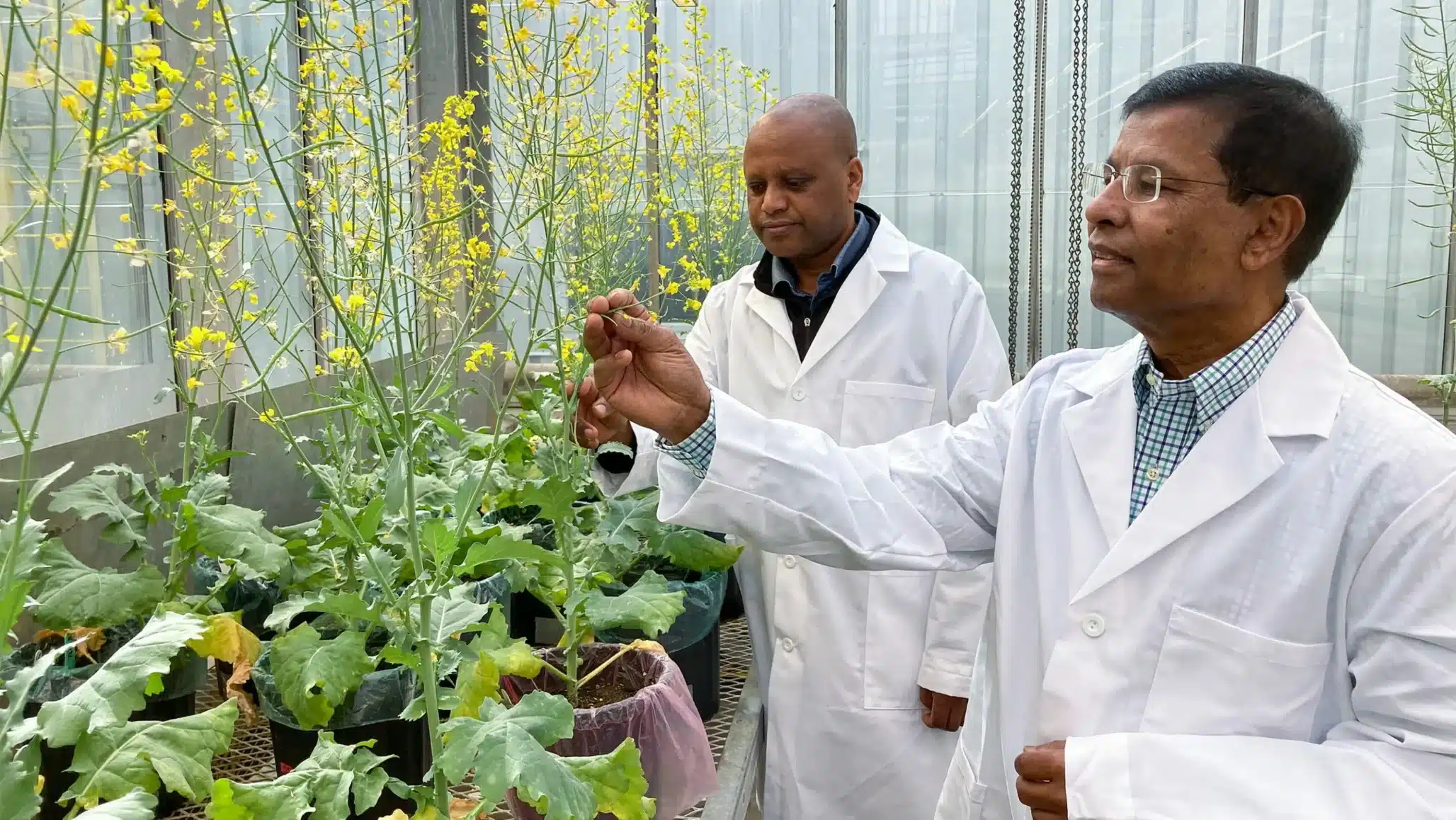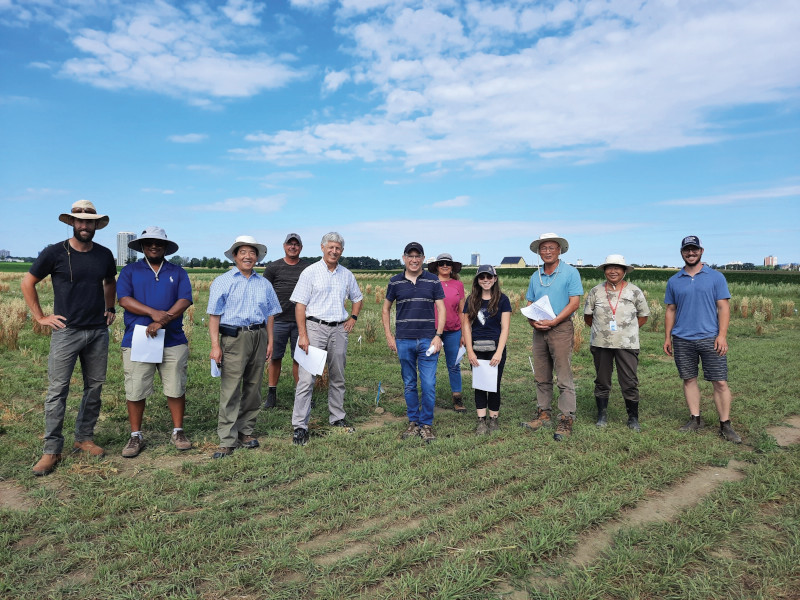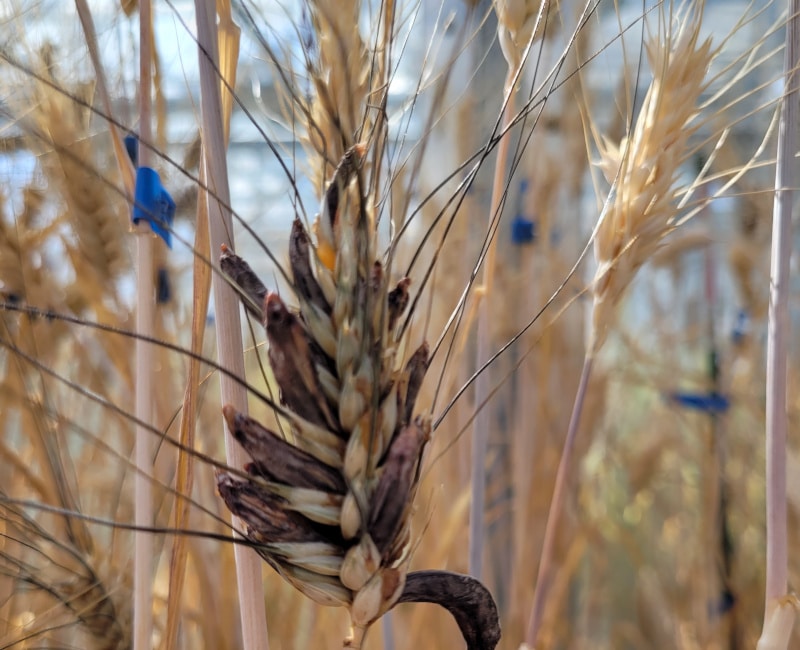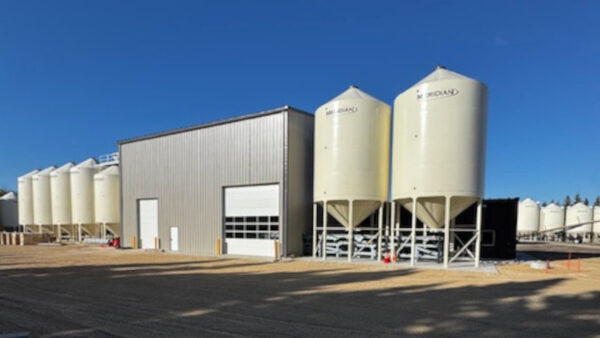
Editor’s Note: This article is part of a series on major contributions to plant breeding and science in Canada’s public sector including innovations in: Canola, Barley, Oat, and Triticale, Wheat, Sunflower, Pulses, Oilseeds, Horticultural Crops, and comments from our editorial board.
Using Cabbage to Attain Clubroot Resistance
University of Alberta
By integrating robust clubroot resistance from wild cabbage into canola, Habibur Rahman’s program is ushering in a new era of canola cultivation fortified with enduring disease resistance.
This breakthrough marks a watershed moment in the realm of interspecific hybridization and resistance introgression, overcoming barriers that previously hindered progress. The implications are profound — canola cultivation stands on the brink of a revolution, poised to thrive with long-term disease resilience.
Indeed, the significance of Rahman’s work reverberates far beyond the confines of the laboratory. Canola, a cornerstone of the Canadian economy with an annual contribution of nearly $30 billion, stands to benefit immensely from this innovation. This collaboration between academia and industry (Bayer Crop Science is a partner in the research) underscores the potential of public-private partnerships.
Genetic Improvement: Hitting Fast-Forward
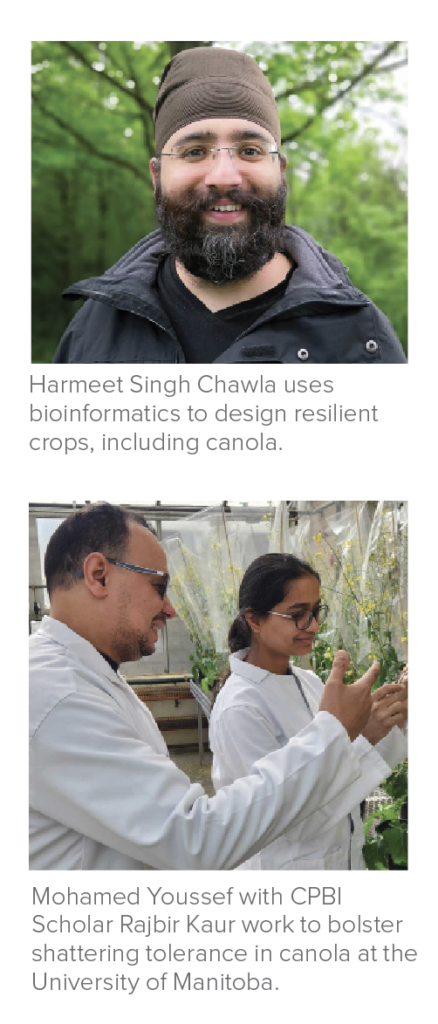
University of Manitoba
There’s a paradigm shift in canola genetic improvement, spearheaded by the visionary research program of Harmeet Singh Chawla. He’s leveraging genomics to propel canola cultivation into the future.
One of Chawla’s standout projects harnesses the transformative power of CRISPR-Cas9 technology to enhance shattering tolerance, a trait critical for harvest efficiency. This groundbreaking work not only earned his student, Rajbir Kaur, the prestigious Canadian Plant Breeding Innovation (CPBI) Scholarship in 2024, but also holds the promise, he says, of democratizing access to shatter-tolerant varieties, which is currently the purview of the private sector.
But Chawla’s ambitions extend far beyond shattering tolerance. Armed with significant funding, he’s embarking on a quest to tackle verticillium stripe resistance in canola, employing cutting-edge qPCR technology for field resistance assessment.
Making Canola More Sustainable
Laval University
The EdeLab Sustainable Plant Protection Group isn’t just studying insects, phytoplasmas, and the clubroot pathogen — it’s forging a path towards a more resilient and sustainable canola industry.
Since its inception in 2020, the program has secured nearly $5 million in funding from provincial, federal, and private sources.
The lab, led by Edel Pérez-López, pioneered a groundbreaking phenotyping system, forging vital links between canola varieties and the clubroot pathogen, empowering growers with targeted solutions. They’ve shattered scientific barriers by sequencing the first telomere-to-telomere genome of the clubroot pathogen, a monumental leap forward in understanding its inner workings.
But its impact extends beyond the laboratory. The lab has uncovered alarming instances of insecticide resistance in leafhoppers, sounding the alarm for more sustainable pest management practices.


Editor’s Note: This article is part of a series on major contributions to plant breeding and science in Canada’s public sector including innovations in: Canola, Barley, Oat, and Triticale, Wheat, Sunflower, Pulses, Oilseeds, Horticultural Crops, and comments from our editorial board. Use the buttons below to explore these exciting new innovations or read from the start.


